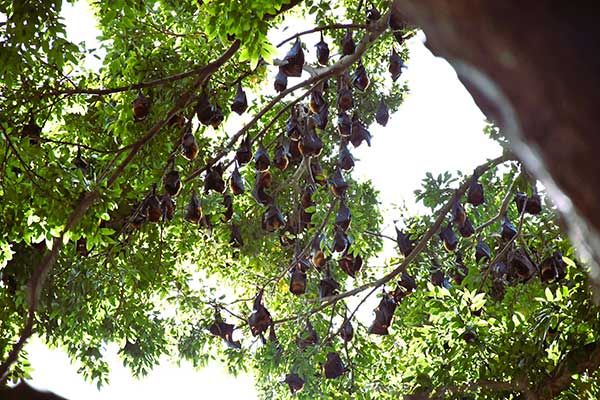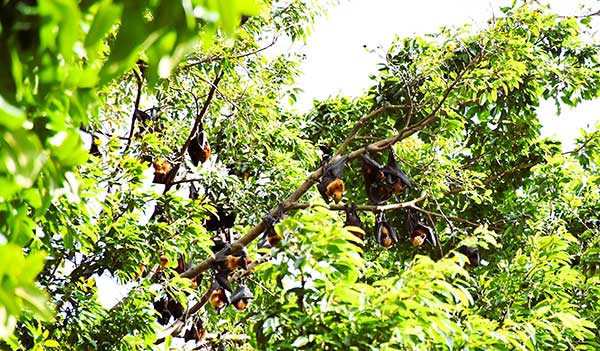They fly on wings of leather, blacken the sky, and amaze onlookers.
A colony of Common Island Flying Foxes (Pteropus hypomelanus) has been observed roosting in Barangay 30, Bacolod City, Negros Occidental. The discovery was recently investigated by biologists and personnel from the Northern Negros Natural Park (NNNP).
Initially, the bats were identified as Golden-crowned Flying Foxes (Acerodon jubatus). However, closer examination confirmed they are Common Island Flying Foxes (Pteropus hypomelanus).
Residents reported to the NNNP team that the bats appear in the area seasonally, indicating a possible migratory pattern.
“Bats are nocturnal and sleep during the day. Those that have taken up residence in Barangay 30 have probably adjusted to the city noise,” said DENR PENR Officer Joan Nathaniel F. Gerangaya.
The colony, estimated to number over a thousand, has established a roost in the area’s fruit trees. Experts suggest this behavior may be influenced by seasonal food availability, changes in local habitat conditions, or disruptions in their usual roosting areas.
Bats use a specialized tendon to hang upside down on tree branches, locking their toes and talons in place without expending energy.
Despite common fears and misconceptions—such as bats sucking blood or being harbingers of disease—these mammals play a vital role in maintaining ecological balance. They act as natural pest controllers, plant pollinators, and seed dispersers, helping reforest areas they visit.
Recent studies estimate that bats save more than $1 billion annually in crop damage and pesticide costs in the U.S. corn industry alone, thanks to their appetite for pests.
“There is no doubt that the rich biodiversity in Bacolod City has attracted the bats to Barangay 30,” said OIC Regional Executive Director Raul L. Lorilla of the Department of Environment and Natural Resources (DENR) Region 6.
“These Common Island Flying Foxes have found a home here. Let us continue protecting and conserving these nocturnal mammals because they play a key role in sustaining ecosystems,” he added. (DENR)




















